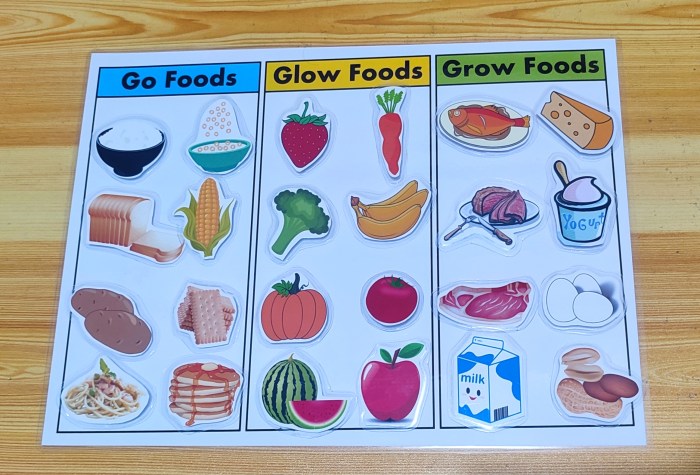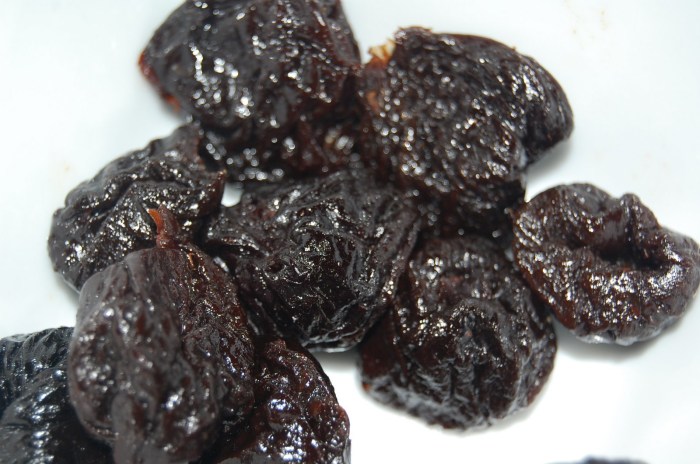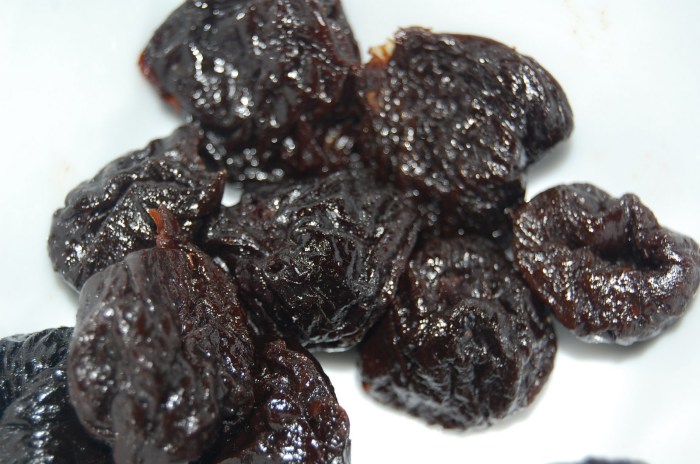How long does constipation last? This isn’t just an annoying question; understanding the duration is crucial for effective management. From mild discomfort to severe distress, the length of time constipation lingers varies significantly. This exploration delves into the factors influencing duration, from dietary changes to underlying health issues, providing insights into when to seek professional help and how to manage the situation effectively.
Constipation, characterized by infrequent or difficult bowel movements, can be a temporary or persistent issue. This article will guide you through the complexities of constipation duration, covering everything from the causes and symptoms to potential treatments and preventative measures. We’ll also look at the connection between severity and duration, and when you should seek medical attention.
Understanding the Duration of Constipation
Constipation is a common digestive issue that affects people of all ages. It’s characterized by infrequent bowel movements, often accompanied by other uncomfortable symptoms. While occasional constipation is normal, prolonged or severe cases can indicate an underlying problem. Understanding the causes, symptoms, and different types of constipation is key to determining the appropriate course of action and the potential duration of the problem.The duration of constipation can vary significantly, depending on the underlying cause.
Some cases resolve within a few days with lifestyle adjustments, while others may persist for weeks or even months. Identifying the root cause is essential for developing an effective treatment plan and determining a realistic timeframe for resolution.
Defining Constipation
Constipation is generally defined as having fewer than three bowel movements per week. This can be accompanied by difficulty passing stool, hard, dry stools, or a sensation of incomplete evacuation. These symptoms can significantly impact daily life and overall well-being. It’s important to remember that “normal” bowel habits vary from person to person. What’s important is consistency in bowel movements.
Common Causes of Constipation
Several factors can contribute to constipation. Dietary changes, such as a low-fiber diet, are common culprits. Dehydration, insufficient fluid intake, can also lead to hard stools and infrequent bowel movements. Lack of physical activity and certain medications (such as pain relievers and some antidepressants) can also play a role. Underlying medical conditions, such as irritable bowel syndrome (IBS), hypothyroidism, or even pregnancy, can also cause constipation.
Symptoms Beyond Infrequent Bowel Movements
Constipation isn’t just about infrequent bowel movements. A range of other symptoms often accompany the condition. Abdominal pain, bloating, cramping, and a feeling of fullness are common complaints. Stools may appear hard and dry, or small and lumpy. In some cases, straining during bowel movements can cause discomfort or even pain in the rectum or abdomen.
Sometimes, nausea or vomiting may accompany the constipation.
Types of Constipation
| Type | Description | Possible Duration |
|---|---|---|
| Functional Constipation | This type of constipation occurs without an identifiable underlying medical condition. It’s often associated with lifestyle factors, such as diet and activity levels. | Variable; can last days to weeks, sometimes resolving with lifestyle changes. |
| Inflammatory Bowel Disease (IBD) Related Constipation | Constipation associated with inflammatory bowel diseases like Crohn’s disease or ulcerative colitis. This type often involves inflammation of the digestive tract, affecting bowel movements. | Variable; can be chronic and require ongoing management. The duration depends on the severity and management of the underlying IBD. |
| Constipation due to Medications | Certain medications, including opioids and some antidepressants, can slow down bowel movements. | Can last as long as the medication is taken. Symptoms usually resolve when the medication is discontinued. |
Factors Influencing Duration
Understanding the factors that influence the duration of constipation is crucial for effective management. Different individuals experience varying durations, and these differences are often related to underlying causes and lifestyle choices. This section delves into factors that can either shorten or prolong the duration of constipation, highlighting actionable strategies to manage potential triggers.Constipation isn’t a one-size-fits-all condition; its duration can fluctuate based on numerous factors.
Some individuals might experience temporary episodes, while others face chronic issues. This variability underscores the importance of personalized approaches to treatment and prevention.
Factors Shortening Constipation Duration
Dietary adjustments, increased physical activity, and stress management techniques can contribute to a shorter duration of constipation. Addressing these factors can help restore regular bowel movements and alleviate discomfort.
- Hydration: Adequate water intake is essential for softening stool and promoting smooth bowel movements. Increasing water intake can help shorten the duration of constipation. A general recommendation is to drink at least 8 glasses of water per day, but individual needs may vary. For instance, an athlete training intensely may need significantly more water than a sedentary individual.
- Fiber-Rich Diet: A diet rich in soluble and insoluble fiber can contribute to faster transit times, making stools bulkier and easier to pass. Examples include fruits, vegetables, and whole grains. A diet rich in fiber can lead to a more frequent and regular bowel movement, potentially reducing the duration of constipation.
- Regular Exercise: Physical activity can stimulate bowel movements and improve gut motility. Regular exercise, even moderate intensity, can contribute to a shorter duration of constipation by increasing blood flow to the digestive system.
Factors Prolonging Constipation Duration
Certain lifestyle choices and underlying medical conditions can contribute to a prolonged duration of constipation. Recognizing these factors is essential for effective management.
- Inadequate Fiber Intake: A diet lacking in fiber can result in hard, dry stools, hindering smooth bowel movements and prolonging constipation. A lack of fiber in the diet can lead to slower transit times, which can make the condition more persistent.
- Dehydration: Insufficient water intake can harden stool, making it difficult to pass and prolonging the duration of constipation. Dehydration directly impacts the consistency of the stool, often leading to a harder and more difficult to pass stool, prolonging the episode.
- Lack of Physical Activity: A sedentary lifestyle can slow down bowel movements and contribute to a longer duration of constipation. Limited physical activity can disrupt the natural rhythm of the digestive system, which can exacerbate constipation.
- Underlying Medical Conditions: Certain medical conditions, such as hypothyroidism, irritable bowel syndrome (IBS), and neurological disorders, can contribute to chronic constipation. For example, individuals with hypothyroidism often experience slower metabolism, affecting bowel movements and potentially leading to prolonged episodes of constipation.
Impact of Dietary Changes on Constipation Duration
Dietary changes can significantly impact the duration of constipation. This table illustrates the potential effects of different dietary modifications.
| Dietary Change | Potential Impact on Constipation Duration |
|---|---|
| Increased water intake | Potentially shorter duration due to softer stool and improved motility |
| Increased fiber intake (fruits, vegetables, whole grains) | Potentially shorter duration due to bulkier stools and faster transit times |
| Reduced processed foods and refined sugars | Potentially shorter duration by reducing potential digestive issues |
| Reduced red meat and high-fat foods | Potentially shorter duration by reducing potential digestive issues and improving motility |
Strategies to Manage Potential Triggers
Proactive management of potential triggers can effectively mitigate the duration and frequency of constipation.
- Establish a Regular Routine: A consistent bowel movement schedule can help regulate the digestive system. This can include establishing a regular time for bowel movements, ideally after meals or at a particular time of the day.
- Stress Management Techniques: Stress can impact gut health, potentially contributing to constipation. Stress management techniques such as meditation, yoga, or deep breathing exercises can help regulate the digestive system.
- Identifying and Avoiding Food Sensitivities: Certain foods might trigger constipation in some individuals. Keeping a food diary to identify potential triggers can be helpful in managing the duration of constipation. For example, dairy products can be a trigger for some individuals, and eliminating them from the diet may help.
Severity and Duration Relationship: How Long Does Constipation Last
Constipation, while often a temporary discomfort, can sometimes linger and become a more serious concern. Understanding the connection between the severity of constipation and its duration is crucial for determining the appropriate course of action. Different underlying causes can significantly impact how long the issue persists.The duration of constipation can vary greatly depending on the severity of the problem and the specific cause.
A mild case of occasional constipation might resolve within a few days with lifestyle adjustments. However, more severe cases, or those stemming from underlying medical conditions, can last for weeks or even months.
Severity Levels and Duration
Understanding the severity of constipation is key to predicting its potential duration. The severity is often tied to the frequency and consistency of bowel movements, along with accompanying symptoms like abdominal pain and bloating. While self-diagnosis is not recommended, observing patterns and consulting a healthcare professional can help in assessing the severity.
Figuring out how long constipation lasts really depends on the cause. Sometimes it’s just a temporary thing, maybe a few days. But if you’re experiencing chronic constipation, it could be a sign of something more serious, like certain medications. For example, be sure to check out this article on don’t combine these COPD medicines as some treatments can have unexpected side effects, including digestive issues.
In these cases, it’s crucial to consult a doctor to determine the underlying cause and the appropriate course of action to resolve the constipation. Ultimately, if your constipation persists, a medical professional can help pinpoint the best solution and ensure a return to regularity.
Examples of Constipation Duration Based on Severity
The following table provides illustrative examples of how constipation duration can vary based on its severity. These are not definitive, and individual experiences can differ significantly.
| Severity Level | Typical Duration | Possible Underlying Causes |
|---|---|---|
| Mild | A few days to a week | Dietary changes, dehydration, stress |
| Moderate | One to several weeks | Underlying medical conditions (e.g., hypothyroidism), certain medications, sedentary lifestyle |
| Severe | Several weeks or months | Severe underlying medical conditions (e.g., irritable bowel syndrome, neurological disorders), chronic use of certain medications, significant lifestyle changes |
Importance of Seeking Medical Attention
Prolonged or severe constipation can indicate an underlying medical condition that requires professional attention. Ignoring persistent or worsening constipation can lead to complications, such as fecal impaction, which is a serious condition requiring immediate medical intervention. If constipation lasts longer than a few weeks, or if it’s accompanied by other concerning symptoms like fever, weight loss, or blood in the stool, seeking medical attention is essential.
A healthcare provider can properly diagnose the cause and recommend appropriate treatment.
Wondering how long constipation lasts? It really varies, depending on the cause. Sometimes it’s just a temporary thing, lasting a day or two, but other times, it can be a more persistent issue. If you’re looking for ways to incorporate eggs into your diet while managing high cholesterol, you might find helpful tips in this article on how to eat eggs if you have high cholesterol.
Ultimately, if your constipation lasts more than a few days, it’s a good idea to talk to your doctor to figure out the best course of action.
Treatment Approaches and Duration
Constipation, while often manageable, can significantly impact daily life. Understanding the various treatment approaches and their expected durations is crucial for effective self-management and seeking appropriate medical guidance. Effective treatment often involves a combination of lifestyle modifications and, in some cases, medication.Different treatment options vary in their effectiveness and the speed at which they provide relief. The duration of relief depends on the underlying cause of the constipation, the severity of the symptoms, and the individual’s response to the chosen treatment.
Lifestyle Changes
Lifestyle modifications form the cornerstone of many constipation management strategies. These changes often address underlying dietary or activity patterns that contribute to the problem. They are typically the first line of defense and often provide long-term benefits.
- Dietary Modifications: Increasing fiber intake is a key element. This can involve incorporating more fruits, vegetables, and whole grains into the diet. Increasing fluid intake is equally important to help the stool move through the digestive tract smoothly. The duration of relief with dietary changes varies. Some individuals may experience noticeable improvement within a few days, while others may require several weeks to see a significant impact.
For example, an individual with a diet lacking fiber might notice relief within a week of incorporating high-fiber foods and sufficient hydration into their daily routine. Conversely, a person with long-standing constipation due to a chronic condition may require several weeks or months to observe sustained relief through dietary adjustments alone.
- Increased Physical Activity: Regular exercise promotes bowel regularity. Moderate-intensity physical activity, such as brisk walking or swimming, can help stimulate bowel movements. The duration of relief varies depending on the individual and the consistency of the exercise routine. A daily 30-minute walk could show improvements in bowel habits in several days, while a more sedentary person may need a few weeks to see similar results.
- Regular Bowel Habits: Establishing a regular bowel movement schedule, ideally around the same time each day, can help train the body to respond to these cues. Establishing this routine can result in relief within a few weeks. Consistency is key. For example, a person who usually has a bowel movement after breakfast might experience improvement in their bowel habits within a week of diligently trying to have a bowel movement around that time daily.
Medications
Pharmacological interventions can be necessary for persistent or severe constipation. Medications can be divided into categories based on their mechanisms of action, and their duration of effectiveness varies significantly.
- Stimulant Laxatives: These medications directly stimulate bowel movements. They are often effective within a few hours to a day, providing short-term relief. However, overuse can lead to dependence. For example, someone experiencing occasional constipation may find relief within a day or two using a stimulant laxative as directed, while long-term use of such medications might lead to tolerance and decreased effectiveness.
- Osmotic Laxatives: These draw water into the colon, softening the stool and facilitating movement. They often provide relief within 12 to 72 hours. They are generally considered safe for long-term use. For example, a patient experiencing occasional constipation due to dehydration might experience relief within 24 hours using an osmotic laxative.
- Bulk-Forming Laxatives: These increase the bulk of the stool, making it easier to pass. These often take several days to show noticeable results and are suitable for long-term use. For example, a person with chronic constipation could experience improvement in their bowel habits within a week of consistently incorporating a fiber supplement or high-fiber foods into their diet.
Combination Treatment Plans
In many cases, a combination of lifestyle changes and medications is necessary to effectively manage constipation. The duration of relief in these cases depends on the individual and the specific plan.
| Treatment Plan | Expected Duration of Relief | Example |
|---|---|---|
| Lifestyle changes (diet, exercise, routine) | Weeks to months | A patient with a history of irregular bowel movements and a low-fiber diet. |
| Lifestyle changes + stimulant laxatives | Days to weeks | A patient experiencing severe constipation and discomfort. |
| Lifestyle changes + osmotic laxatives | Days to weeks | A patient with occasional constipation related to travel or stress. |
Home Remedies and Duration Impact

Often, when dealing with constipation, people turn to home remedies before seeking professional medical advice. While some can provide temporary relief, it’s crucial to understand their potential limitations and duration of effectiveness. These remedies can be helpful adjuncts to a comprehensive treatment plan, but they should not replace the advice of a healthcare professional.Home remedies for constipation vary widely in their mechanisms of action and potential impact on the duration of relief.
Some work by increasing fiber intake, others by stimulating bowel movements, and still others by promoting hydration. The duration of relief often depends on the individual’s specific digestive system, the severity of constipation, and the chosen remedy. It’s important to remember that what works for one person might not work for another.
Common Home Remedies and Their Potential Impact
Various home remedies are frequently used to address constipation. Their effectiveness and duration of impact can vary considerably.
- Increased Fiber Intake: A high-fiber diet is a cornerstone of constipation management. Foods rich in fiber, such as fruits, vegetables, and whole grains, promote bulkier stools, making them easier to pass. The duration of relief from increased fiber intake is generally gradual, as the effects are cumulative over time. The body requires time to adjust to the increased fiber intake, and the duration of relief can vary depending on the individual’s response and the consistency of their fiber intake.
For instance, a person who consistently consumes high-fiber foods might experience more sustained relief compared to someone who sporadically increases their fiber intake.
- Hydration: Adequate water intake is essential for healthy bowel movements. Drinking enough water helps soften stool and promotes easier passage. The duration of relief is directly related to the consistency of water intake; consistent hydration contributes to more prolonged relief compared to sporadic hydration efforts.
- Exercise: Regular physical activity can stimulate bowel movements. The duration of relief from exercise is typically short-term, and its impact is directly related to the consistency of exercise habits. Someone who exercises regularly might experience more frequent and sustained relief.
- Stool Softeners: Over-the-counter stool softeners work by adding moisture to the stool, making it easier to pass. The duration of relief is generally short-term and depends on the dosage and individual response. They are typically effective for relieving immediate constipation but may not address the underlying cause.
- Probiotics: Probiotics are live microorganisms that can improve gut health. Some studies suggest they can improve bowel regularity, but the duration of relief is often not as immediate as other remedies. The effects are often cumulative, requiring consistent use for sustained benefits.
Effectiveness Comparison of Home Remedies
The following table provides a general comparison of the effectiveness of various home remedies for constipation. It’s crucial to remember that individual results may vary.
| Home Remedy | Effectiveness (General Assessment) | Duration of Impact (General Assessment) |
|---|---|---|
| Increased Fiber Intake | Moderate to High | Long-term (weeks to months) |
| Hydration | High | Short-term to medium-term (hours to days) |
| Exercise | Moderate | Short-term (hours) |
| Stool Softeners | High | Short-term (hours to days) |
| Probiotics | Moderate | Medium-term (weeks to months) |
Potential Side Effects of Prolonged Use
While many home remedies are generally safe, prolonged use of certain ones can lead to side effects. For instance, excessive fiber intake can cause bloating, gas, and discomfort. Similarly, over-reliance on stool softeners can lead to dependence and a weakening of the bowel muscles’ ability to function independently. It is crucial to consult a healthcare professional before trying any home remedies, especially if you experience chronic constipation.
Importance of Professional Consultation
It’s essential to consult a healthcare professional before trying any home remedy for constipation, particularly if the constipation is chronic or accompanied by other symptoms. A healthcare professional can identify the underlying cause of the constipation and recommend the most appropriate course of treatment. This approach ensures the best possible outcome and prevents potential complications from prolonged or inappropriate self-treatment.
When to Seek Medical Attention
Chronic constipation, while often manageable with lifestyle changes and home remedies, can sometimes signal a more serious underlying condition. Ignoring persistent constipation or accompanying symptoms can delay diagnosis and treatment, potentially leading to complications. Understanding when to seek medical attention is crucial for maintaining overall health and well-being.Knowing the warning signs and understanding the situations that require immediate medical evaluation empowers individuals to make informed decisions about their health.
This section details the circumstances under which consulting a healthcare professional is essential for effective management and potential resolution.
Situations Requiring Immediate Medical Attention
Persistent constipation, particularly when accompanied by other concerning symptoms, necessitates immediate medical attention. This includes situations where the constipation is severe, prolonged, or accompanied by other distressing symptoms.
- Severe abdominal pain that is persistent and worsening.
- Rectal bleeding or blood in the stool.
- Unexplained weight loss coupled with constipation.
- A change in bowel habits, including the onset of constipation, if accompanied by fever or chills.
- Constipation that doesn’t respond to home remedies and lifestyle changes after several weeks.
- Nausea, vomiting, or fever accompanying constipation.
Symptoms Requiring Urgent Medical Evaluation
A variety of symptoms can accompany constipation, and some warrant immediate medical attention. Recognizing these symptoms is key to seeking timely intervention.
- Rectal bleeding, especially if it is bright red, indicates potential issues in the lower digestive tract and requires immediate evaluation.
- Persistent and severe abdominal pain, cramping, or bloating, can be indicative of underlying conditions, requiring prompt medical assessment.
- Unexplained weight loss along with constipation can signal underlying digestive problems, requiring further investigation.
- Fever and chills accompanying constipation may indicate an infection or other inflammatory condition, necessitating immediate medical attention.
- Nausea and vomiting in conjunction with constipation can be indicative of various digestive issues or complications, and requires immediate evaluation.
Scheduling a Consultation
Scheduling a consultation with a healthcare professional is crucial for prompt diagnosis and treatment. Understanding the process for scheduling a consultation will facilitate appropriate medical care.
- Contact your primary care physician to discuss the need for a consultation regarding your persistent constipation and associated symptoms.
- If your primary care physician is unavailable, seek guidance from a local urgent care facility or a hospital emergency room.
- Be prepared to provide a detailed medical history, including any relevant past medical conditions, medications, or allergies.
- Clearly explain the duration, severity, and specific symptoms of your constipation, enabling the healthcare professional to understand the situation accurately.
- Follow any instructions provided by the healthcare professional for preparation, such as fasting or taking specific medications before the consultation.
Warning Signs of Serious Underlying Conditions
Recognizing warning signs can help distinguish between common constipation and potentially serious underlying conditions.
| Symptom | Potential Underlying Condition |
|---|---|
| Severe abdominal pain | Appendicitis, diverticulitis, bowel obstruction |
| Rectal bleeding | Anal fissure, hemorrhoids, colorectal cancer |
| Unexplained weight loss | Inflammatory bowel disease, cancer |
| Fever and chills | Infection, inflammatory condition |
| Nausea and vomiting | Gastrointestinal infection, bowel obstruction |
Preventive Measures and Duration
Staying regular in your bowel movements isn’t just about managing occasional constipation; it’s about cultivating a healthy lifestyle that supports long-term digestive well-being. Proactive measures can significantly reduce the risk of experiencing constipation and its uncomfortable duration. These preventative strategies are key to maintaining a consistent and comfortable bowel routine.
Dealing with constipation can be a real drag, but how long does it typically last? It really depends on the cause, but sometimes it can linger for a few days. While you’re trying to figure out what’s going on, you might want to consider exploring different supplements, like krill oil vs fish oil, to see if they help with your overall digestive health.
Ultimately, if the constipation persists longer than a week, it’s always best to consult a doctor to rule out any underlying issues. krill oil vs fish oil can be a helpful supplement for various reasons, but it’s not a cure-all.
Regular Exercise
Physical activity is crucial for overall health, and its benefits extend to digestive health as well. Regular exercise promotes healthy bowel movements by stimulating the muscles in the digestive tract, aiding in the movement of waste.
- Aim for at least 30 minutes of moderate-intensity exercise most days of the week. Activities like brisk walking, swimming, or cycling are excellent choices. Consistent activity helps strengthen the muscles responsible for bowel movements.
- Even short bursts of activity throughout the day can contribute to better digestive function. Taking the stairs instead of the elevator or parking further away from your destination can make a difference over time.
Balanced Diet
A balanced diet rich in fiber is essential for maintaining regular bowel movements. Fiber adds bulk to stool, making it easier to pass. This, in turn, can reduce the duration of constipation.
- Include a variety of fruits, vegetables, and whole grains in your daily meals. Fruits like apples, berries, and prunes are particularly rich in fiber.
- Legumes, such as beans and lentils, are excellent sources of dietary fiber. Whole grains, like brown rice and quinoa, are also beneficial for increasing fiber intake.
- Gradually increase your fiber intake to avoid gas and bloating. Start with small amounts and gradually increase as your body adjusts.
Adequate Hydration
Drinking enough water is essential for proper bowel function. Water helps soften the stool, making it easier to pass. This can significantly impact the duration of constipation.
- Carry a water bottle and sip on it throughout the day. Aim for at least 8 glasses of water daily, but individual needs may vary.
- Include hydrating foods in your diet, such as fruits and vegetables. Watermelon, cucumbers, and spinach are excellent choices.
- Avoid excessive consumption of caffeinated beverages, as caffeine can have a mild laxative effect, but can also dehydrate you if not properly balanced with water intake.
Visual Representation of Duration

Understanding how long constipation lasts can be tricky, as it varies greatly from person to person. Factors like diet, lifestyle, underlying health conditions, and even stress levels all play a role. Visual representations can help us grasp these complexities and personalize our understanding of this common issue.Visual aids like flowcharts and graphs can clarify the typical progression of symptoms and highlight the importance of monitoring your own bowel habits.
These tools can help individuals recognize patterns and understand when it’s time to seek medical attention.
Flowchart of Constipation Progression
This flowchart illustrates a typical progression of constipation symptoms over time. It’s crucial to remember that individual experiences may differ significantly.
Start --> (Normal Bowel Habits) --> (Decreased Frequency) --> (Hard, Dry Stools) --> (Straining) --> (Painful Bowel Movements) --> (Increased Duration of Constipation) --> (Possible Medical Intervention) --> End
This simplified flowchart highlights the common stages, from reduced frequency to straining and eventual pain, and the potential need for medical intervention. Remember that many people experience constipation for short periods without needing medical help.
It’s the prolonged nature or severity that warrants attention.
Graph of Average Constipation Duration by Age Group
A graph displaying average constipation duration across different age groups can offer a general guideline. However, individual experiences vary considerably.
(Note: A visual representation of a graph is not possible within this text format. A typical graph would display age groups on the x-axis and average duration of constipation (in days) on the y-axis. Data points would represent the estimated average duration for each age group.)
For example, a graph might show that infants and toddlers have a higher frequency of short-term constipation episodes compared to adults. Teenagers and young adults might also experience a higher rate of short-term issues, potentially related to dietary changes or stress. Older adults might experience more prolonged episodes due to factors like decreased mobility or medication side effects.
Monitoring Bowel Habits for Personalized Insights, How long does constipation last
Regularly monitoring your bowel habits provides invaluable personalized insights into your digestive health. By tracking patterns, you can better understand your own unique responses to various factors.
Keeping a detailed record of bowel movements, including the frequency, consistency, and any accompanying discomfort, can reveal patterns. This information can help you identify triggers, such as dietary changes or stress levels, that might be contributing to your constipation. This data can be particularly useful when consulting with a healthcare professional.
Tracking Bowel Movements
Tracking bowel movements is a powerful tool for understanding your individual patterns. A simple log can be highly informative.
This log should include the date, time, and description of each bowel movement. Note the consistency of the stool (e.g., hard, soft, liquid), the presence of any discomfort or pain, and any factors that might have influenced the bowel movement, such as diet or stress levels.
This consistent record can help identify recurring patterns and potential triggers. This information can be shared with your healthcare provider for a more thorough assessment and personalized treatment plan.
Conclusive Thoughts
In conclusion, the duration of constipation is a multifaceted issue dependent on various factors. Understanding these factors, from lifestyle choices to underlying medical conditions, empowers you to manage the problem effectively. Remember, persistent or severe constipation warrants immediate medical attention. By taking proactive steps to improve your diet, lifestyle, and overall health, you can significantly reduce the risk of experiencing prolonged constipation.
This knowledge equips you to navigate this common digestive concern and maintain optimal bowel health.










